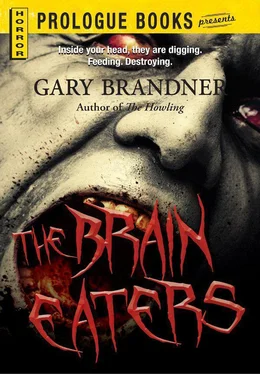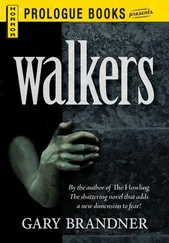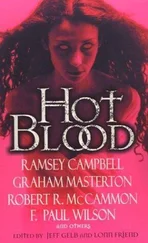“We were told it was a mechanical problem,” Raslov said. “Is your bureau now involved in the field of aircraft maintenance?”
Taylor’s lips compressed in a cool smile. “We may as well admit there was no mechanical problem.”
“So?”
“What with the national emergency, there have been communications breakdowns. What happened was we received conflicting orders from Washington. Your flight was held but, as it turned out, unnecessarily. A bureaucratic mistake. You probably know how that goes.”
Raslov said nothing. Let the young FBI man squirm a little bit.
Taylor went on quickly. “That’s the bad news. The good news is that your flight is cleared for immediate departure.”
Surely, Raslov thought, this glib young man has not failed to notice that there is one fewer in our party than when we arrived. Now that we have misplaced Kuryakin, the Americans are suddenly anxious for us to depart. Why?
He said, “By strange coincidence my orders, too, have been changed. We will not require the airplane for immediate departure.”
“Oh?” Taylor could not completely hide his displeasure. “When will you be leaving?”
“That has not been decided. In any event, is this not a matter for your State Department?”
Point for Raslov. The FBI man could not question him further without stepping on diplomatic toes, and he could certainly not now detain him, having claimed that it was only “bureaucratic bungling” that had caused the delay in the first place.
After an exchange of meaningless pleasantries, the Russians were permitted to leave while the FBI agents attempted, unsuccessfully, to lose themselves in the airport crowd. Raslov and his men resumed their search, but the delay in Henderson’s office would have been just enough to let Kuryakin slip away. Raslov was muttering darkly to himself when one of the men beckoned to him from the counter of United Airlines.
• • •
Considering the volatile personalities involved, the brain-eaters task force operating at the Biotron plant got off to a surprisingly smooth start. Dr. Kitzmiller, in charge of the operation, asked for specific people from across the nation whose expertise would be valuable in the search for an antidote. With Lou Zachry pulling the strings, the people Kitzmiller wanted were speedily brought out if they were available. The crucial nature of their job was further pointed up by the fact that a number of Kitzmiller’s specialists had themselves fallen victim to the parasites.
Dr. Jason Everett, specialist in diseases of the brain, was flown in from Denver. Parasitologist Dr. Dorothea Knight came from Boston. From Honolulu they brought epidemiologist Dr. Luke Chin. Dr. Marcus Pena, who knew all there was to know about blood diseases, came from San Diego. Under the direction of Dr. Kitzmiller and with the consultation of Dena Falkner, these temperamental specialists managed to work together in something resembling a team.
Corey Macklin, sulking in the spartan quarters provided for him adjoining the laboratories, admired the work being done but fretted continually about his own contribution, or lack of same. While Dena, Kitzmiller, and the others worked long, tiring hours in the labs, Corey felt he was accomplishing nothing.
“You’re doing a fine job, Corey,” Lou Zachry told him. “Without you the place would be crawling with reporters and other snoopers, all getting in the way and slowing down any progress we might be making in the labs. And if it weren’t for your releases, God knows what kind of crazy stories they’d take out of here.”
“I’m a newspaperman, not a PR flack,” Corey complained. “I should be writing this story myself, not passing out vaguely worded bullshit to pacify the so-called reporters in this so-called media pool.”
“If we can lick this thing, you’ll have the biggest story of them all,” Zachry said. “And if we don’t … Well, then, it won’t matter, will it.”
Corey grumbled, but he had to admit the government man had a point.
The pool reporters, for their part, were not enthusiastic about being kept away from Kitzmiller and the others and allowed to interview only Corey Macklin. The television people, especially, were unhappy. Their reportage depended on pictures, and there was nothing there to take pictures of.
“Believe me,” Corey told them. “If I could bring one of the brain eaters out here in tiny handcuffs for you to put on camera, I’d do it.”
Nobody thought that was very funny.
• • •
“I want to go into Milwaukee,” he told Zachry after the morning briefing was concluded.
“What for? This is where the story is.”
“The story is in the whole country,” Corey said, “and I’m cut off from it. All there is here is a bunch of doctors who might as well be talking a foreign language for all I know of what they’re doing.”
“Your job here is important. The fate of God knows how many people depends on what happens in these laboratories.”
“I’m going into Milwaukee,” Corey said stubbornly.
Lou Zachry kept the all-American boy grin, but his eyes hardened. He said, “I don’t think it’s a good idea for you to leave.”
“I don’t think I give a damn what you think,” Corey said. “I still go where I want when I want. Unless you’re putting me under arrest.”
“No, no, nothing like that, but I wish you’d think about it.”
“I have thought about it. I need a day off. Let the pool reporters interview one another this afternoon.”
Corey could tell that Lou Zachry was not pleased, and he almost hoped he would make an issue of it.
But the government man grinned and gave him a playful poke to the shoulder. “Go ahead, then, but don’t play cards with strangers.”
In spite of his irritation Corey grinned back. “Don’t worry, Mom,” he said, “I’ll be good.”
• • •
The drive from the Biotron plant into Milwaukee was no longer the routine trip it had been just a month before. During the early days of the panic, people had rushed off in their cars, thinking somehow to put distance between themselves and the brain eaters. Accidents had multiplied with the number of distraught and ill drivers on the road. Before long, all efforts to clear away the wreckage were abandoned. Now people were forced to drive more slowly to be alert for chunks of wrecked automobiles on the road.
Some of the freshly painted, well-kept farmhouses along the way were deserted. In most cases the cows and the dogs of a stricken family were taken in by neighbors, but chickens were too much trouble, and flocks of the abandoned birds could be seen flapping along the shoulders of the highway.
Another problem in driving was the absence of operating gasoline stations. Not since the gas shortage of the early 1970s had filling the tank been such an iffy proposition. Highway-station operators, because of their contact with people from all points, were early victims of the brain eaters. Others had closed down when supplies from the refineries were slow in coming. The lush Wisconsin countryside through which Highway 41 passed had become a pastoral no-man’s land.
The city of Milwaukee, although torn by illness, death, and fear, still had life on the streets, but that was not necessarily good news. As he drove slowly along with the doors locked and the windows up, Corey saw bands of shouting youths smashing the few windows that remained intact and carrying out anything portable from the buildings.
Sirens wailed continuously. No one walked the streets alone. Furtive faces peeked from behind shuttered windows. The police and National Guardsmen attempted to maintain some semblance of order, but as their own ranks were thinned by the parasites, they fought a losing battle.
Читать дальше












